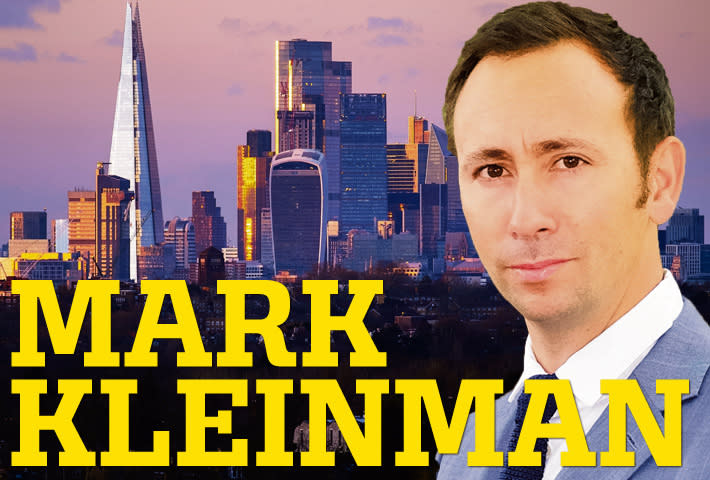Mark Kleinman: Why Starling needs Engine to fuel IPO dream

Mark Kleinman is City editor at Sky News
Starling needs Engine to fuel IPO dream
Companies offer myriad reasons for the departures of chief executives. Few are as downright peculiar as the one given by Starling Bank when it announced in May that founder Anne Boden was stepping down.
“Now that we have grown from being an aspiring challenger to an established bank, it is clear the roles and priorities of a CEO and a large shareholder ultimately differ and require distinct approaches,” she said at the time.
The appointment of an interim successor only fuelled suspicions that Boden’s exit had been hastily organised rather than carefully conceived.
Subsequent reports suggested that investor unrest over the sale of a block of shares by Jupiter Asset Management at a steeply discounted valuation had contributed to the leadership shake-up.
There are reasons, though, to believe that the neobank’s path towards an initial public offering that Boden had talked up for years might finally be within sight – even with equity markets as downright hostile to new issuers as London’s are presently.
Rival Monzo’s discussions with investors about raising more than £300m through a private placement look well-timed: rising interest rates and a shake-up in the digital banking sector have dovetailed neatly for the players of scale which remain.
Monzo’s capital injection – likely to be its last before a flotation of its own – is said to be under discussion at a premium to the £3.5bn valuation at which it raised funding in 2021. Against a brutal backdrop for loss-making tech companies, that would be no mean feat.
Meanwhile, Atom Bank confirmed yesterday that it had raised another £100m from existing investors, albeit at a depressed valuation.
At Starling, a valuation uplift looks increasingly plausible based on impending news about its banking platform-as-a-service division, Engine. I understand from well-placed sources that the company is close to announcing its inaugural deals with customers in Australia and Romania, both of which are expected to involve long-term contracts generating millions of pounds in revenue.
Starling still needs to solve its leadership conundrum, but a credible new CEO would put it firmly on the path to a listing within 18 months.
Pizza and noodles would make odd menu for market
Who says pizza and noodles don’t mix? Certainly not Allan Leighton, chairman of Wheel Topco, the parent company of Pizza Express. The prolific businessman, who has a long-standing reputation for bringing common sense and clarity to complex corporate situations, has had his appetite whetted by the prospect of snapping up The Restaurant Group (TRG), the London-listed parent company of Wagamama and Brunning & Price, the pubs chain.
It’s a business he was on the board of, having also chaired Wagamama as a standalone company under the ownership of Duke Street, the private equity firm. And as I’ve revealed during the last week, Pizza Express has requested access to the information required to conduct due diligence on an offer, having already made a proposal in recent months to roll Wheel Topco into TRG in return for a sizeable equity stake.
Leighton’s dining at a table for two, though – Apollo Global Management has already had an offer recommended worth 65p-a-share. Investors backing that deal have said they won’t switch support unless a rival bidder comes in at 71.5p or higher.
Analysts estimate that there might be roughly £40m of cost synergies between the two companies, which should theoretically mean that Pizza Express could justify paying a higher price than Apollo.
Yet Pizza Express’s gearing, and the state of debt markets, might mean that financing a deal is tough. I understand it is now talking to potential backers about assembling the necessary firepower.
There’s also the question of how the combined group’s shareholders – if TRG is taken private – might secure a future exit. Neither London’s IPO landscape (see Starling above) nor Britain’s casual dining market look to have particularly appealing prospects.
Leighton clearly has a lot to digest: as yet, there has been no formal statement from Wheel Topco about its interest in a takeover of its fellow casual dining chain. Goldman Sachs is acting for Pizza Express, and no doubt will want a slice of the fee action. Don’t be surprised if Leighton pops up with a formal offer this month.
Mystery ‘Paul’ should Telegraph his intentions
Numerous questions surround the sale of The Daily Telegraph and its Sunday sister title: how much will they fetch at auction? Just who is behind the Barclay family’s financing? And will the government probe a takeover on public interest grounds?
One more – theoretically instantly solvable – mystery has surfaced in the last fortnight, following a British Virgin Islands court hearing at which Lloyds Banking Group hoped to gain approval for the liquidation of Penultimate Investments Holding Company, a Barclay-controlled vehicle.
Observers say that of the third parties who registered to watch proceedings, one registered only as “Paul”.
The obvious candidate, Sir Paul Marshall, the hedge fund tycoon and GB News shareholder, denies through a spokesman that it was him. Neither was it Paul Zwillenberg, the former Daily Mail publishing chief acting as an adviser to Marshall.
Could it have been Lord (Paul) Dacre, the former Mail editor? Or is there another mystery Paul who seems curiously reluctant to divulge their full identity? Answers on a postcard please.

 Yahoo Finance
Yahoo Finance 